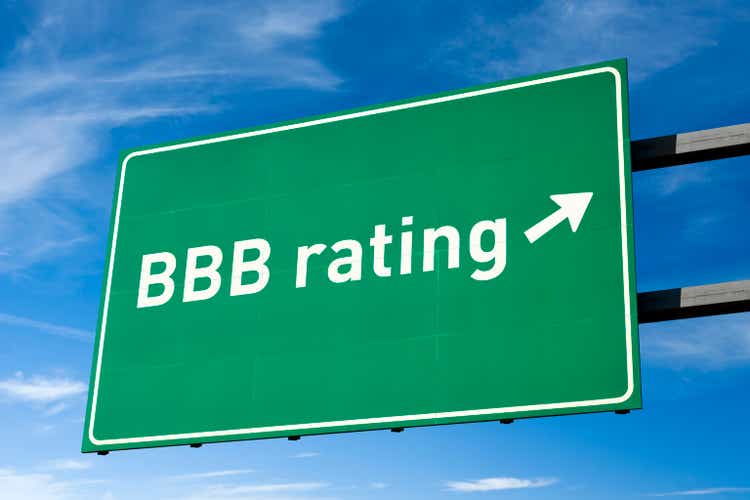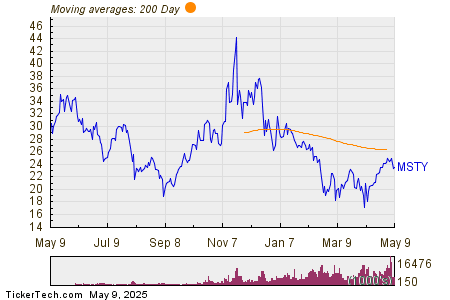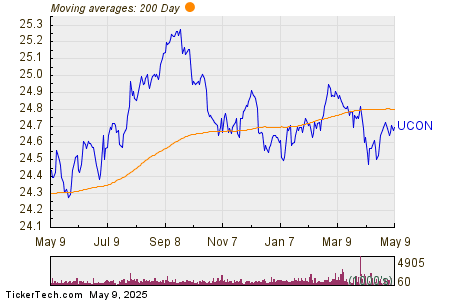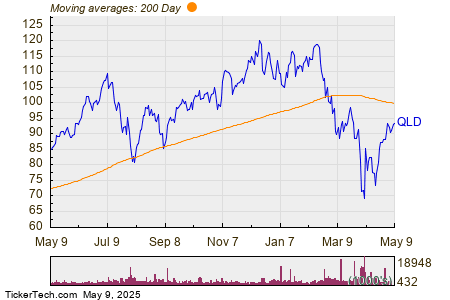
“Who’s Buying These ‘Fortress’ A-Rated REITs?” was one of my final 2023 articles. In it, I described blue-chip real estate investment trusts, or REITs, as the crème de la crème, the very best-quality companies that you can own. They’re great stocks to own in almost any market cycle because they most always have access to equity and debt.
“And they typically generate stable earnings and dividends. The most common attributes for a blue-chip are its balance sheet and conservative dividend policy.
“Specifically, blue-chip companies [almost] always have modest debt ratios with low-risk credit ratings.”
That’s why I also call them sleep well at night stocks or SWANs. And why they’re able to demonstrate “consistent growth in adjusted funds from operations [AFFO] and dividends, making them attractive investments.”
It’s always great to own such top-notch investments. But they do have two distinct downsides.
One is that their dependability tends to translate to higher stock prices. This can mean their fair valuations are simply higher, meaning you need more dollars to buy a single share. And it very, very often means they trade at those fair valuations or higher – instead of the discounts we like to look for.
There’s also the issue that they don’t often provide immediate boosts of profit. They do provide profits. Safe, significant ones too.
But they take more time to accrue. So if you’re looking for a faster turnaround, you usually need to increase your risk and look lower on the alphabet.
The Appeal of BBB+ Rated REITs
Now, as my regular readers know, I don’t advise adding too much risk to your investing inventory – neither in overall theory nor stock-to-stock practice. But there’s no way to avoid risk all around.
There’s simply no investment that can provide 100% rewards 100% of the time. So there is a proper balance to strike, and that exact balance is going to look different for every individual investor. However, BBB+ rated REITs are rarely a bad place to turn.
To understand how, let’s first look at the S&P rating structure, where AAA is the absolute best designation. The worst of the worst, meanwhile, is D.
If a company is slapped with that latter assessment, it means it’s about two steps away from crashing and burning.
That’s too much risk, for the record. Though I’m sure you already recognize that. It’s obvious.
S&P Global Rating’s whole structure is very easy to use, in fact, sliding down like this:
- AAA
- AA
- A
- BBB
- BB
- B
- CCC
- CC
- C
- D.
The first four ratings are labeled as “investment grade” while the latter six are “speculative grade.” Which means that BBB is the lowest you can go in the investment grade category.
This means you’ve still got substantial reward in terms of safety. These companies are far from falling apart.
Yet they tend to trade at lower entry prices, leaving more room to run on the upside.
A Bit More Risk With a Lot More Than a Bit of Reward
Now, admittedly, there are plenty of excellent prices to capitalize on across the real estate investment trust realm. So the price appreciation aspect isn’t as strong a reason to act on as it otherwise could be.
At the same time, the stocks I’m about to delve into represent quality companies. Sure, they each have room for improvement according to S&P.
(And S&P is very good at what it does, analyzing each investment intensely to reach its conclusions.)
So you’re not going to find something quite as impressive as, say, AvalonBay Communities (AVB). That REIT made my A-rated REIT list a week or two ago, warranting this glowing review:
Or like Realty Income (O), Equity Residential (EQR), Simon Property Group (SPG), Mid-America Apartment Communities (MAA), Camden Property (CPT) – all of which are A- rated – or Prologis (PLD) or Public Storage (PSA), which are even higher on the scale at unadulterated A’s,
With that said, I still think you might like what you see.
Healthpeak Properties, Inc. (PEAK)
This BBB+ rated REIT has a market cap of almost $11.0 billion and a portfolio of healthcare real estate with a focus on lab campuses, outpatient medical centers, and continuing care retirement communities (“CCRC”).
In late October, PEAK announced that it had agreed to an all-stock merger with Physicians Realty Trust (DOC), which is expected to close in the first half of 2024.
The combined company’s portfolio will cover approximately 52 million SF across high-growth markets including Houston,
Top REITs to Invest in 2023
Healthpeak Properties, Inc. (PEAK)
Healthpeak Properties, Inc. is set to acquire Welltower, Inc. in a transformative merger that will significantly bolster its real estate portfolio. This merger is expected to increase PEAK’s enterprise value from approximately $16 billion to an astounding $21 billion. Additionally, PEAK’s property count will grow from 475 to 753, while their outpatient medical square footage will surge from 24 million SF to 40 million SF. With the annualized base rent (“ABR”) set to elevate from $1.3 billion to $1.7 billion, this acquisition promises a substantial leap in value for the company.
Alexandria Real Estate Equities, Inc. (ARE)
Alexandria Real Estate Equities, Inc., a BBB+ rated REIT, boasts a market cap of approximately $22.4 billion and owns a massive 75.1 million SF portfolio of life science real estate. Positioned in prime AA cluster locations in major cities, including Boston, San Francisco, and New York City, ARE’s asset base is well-diversified by tenant, with top tenants making up only 32.4% of its revenue. The company has a fortress-like balance sheet, evident in its strong metrics such as a net debt to adjusted EBITDA of 5.4x and a fixed charge coverage ratio of 4.8x. With an average AFFO growth rate of 5.75% since 2014 and an anticipated 10% increase in AFFO per share for the full year 2023, investors have much to look forward to with ARE.
Rexford Industrial Realty, Inc. (REXR)
Rexford Industrial Realty, Inc., with a market cap of almost $12.0 billion, is a leading BBB+ rated REIT focused on the Southern California (“SoCal”) region. The company’s exclusive concentration in SoCal, the largest industrial market in the United States, adds a unique strength to their portfolio. With an average AFFO growth rate of 13.10% since 2014 and high earnings expectations over the next several years, REXR presents a promising investment opportunity.
Essex Property Trust, Inc. (ESS)
Essex Property Trust, Inc., a BBB+ rated REIT, boasts a market cap of almost $16.0 billion and holds a portfolio of multifamily communities located exclusively on the West Coast. With a specialization in the development, acquisition, and management of apartment communities in supply-constrained West Coast markets, ESS’s offerings are unique. This REIT’s focus on exclusive locations and a portfolio of 62,000 apartment homes indicates a promising future.
REITs Continue to Offer Compelling Investment Opportunities Despite Economic Volatility
The Remarkable Rise of Essex Property Trust (ESS)
Founded in 1994, Essex Property Trust (ESS) has demonstrated remarkable financial fortitude and yielded consistent, resilient results for its shareholders. As an S&P 500 Dividend Aristocrat, ESS has perpetually elevated its dividend for 29 consecutive years, achieving a staggering 453% cumulative dividend growth since its public listing. Such steadfast value creation has firmly entrenched ESS as a pivotal player in the real estate investment trust (REIT) domain.
ESS boasts a robust balance sheet, evidencing a net debt to adjusted EBITDAre of 5.5x and a long-term debt to capital ratio of 53.13%. This financial robustness is complemented by an alluring 3.79% dividend yield, shored up by a well-covered AFFO payout ratio of 69.96%. Currently trading at a P/AFFO of 18.66x, in contrast to its average AFFO multiple of 23.27x, ESS presents an enticing opportunity for discerning investors, meriting its endorsement as a “Buy.”
The Steady Ascent of NNN REIT, Inc. (NNN)
With a market cap hovering around $8.0 billion, NNN REIT, Inc. (NNN) has embraced a trajectory of unwavering growth. Boasting a massive portfolio of single-tenant, net-leased retail properties totaling 35.8 million SF, NNN has cemented itself as a pivotal presence in the REIT landscape.
Emphasizing a balance sheet flourishing with a net debt to EBITDA ratio of 5.4x and a long-term debt to capital ratio of 50.49%, NNN further fortifies its appeal with a dividend yield of 5.27% – dutifully safeguarded by an AFFO payout ratio of 68.62% – and a compelling P/AFFO of 13.20%, relative to its average AFFO multiple of 17.11x. These numbers paint an encouraging portrait, solidifying NNN’s designation as a “Buy.”
The Resilience of Kimco Realty Corporation (KIM)
Boasting an impressive market cap of approximately $14.0 billion, Kimco Realty Corporation (KIM) has established a colossal 90 million SF portfolio spanned across 527 properties, predominantly comprising shopping centers and a burgeoning array of mixed-use assets throughout the U.S.
KIM’s recent acquisition of RPT Realty, adding 56 sprawling open-air shopping centers to its repertoire, signifies an expansion emblematic of its sturdy balance sheet. With a Look-through net debt to EBITDA of 5.9x and a fixed charge coverage ratio of 4.3x, KIM’s resilience is further underscored by a prudently covered 4.60% dividend yield, endorsed by an AFFO payout ratio of 84.30%. Coupled with a P/AFFO of 17.22x, relative to its historical average AFFO multiple of 19.12x, KIM emerges as a compelling “Buy.”
The Endurance of Regency Centers Corporation (REG)
Regency Centers Corporation (REG), sporting a substantial market cap of approximately $12.0 billion, commands a vast portfolio encompassing 56.0 million SF, replete with over 480 leased shopping center properties. Its commitment to quality is evident in its strategic focus on developing and operating shopping centers located in demographically appealing markets.
Such endurance is fortified by a robust balance sheet, showcased through compelling figures such as a net debt to adjusted EBITDAre of 5.2x and a fixed charge coverage ratio of 4.6x. Notwithstanding headwinds, REG has maintained a solid 3.45% dividend yield, supported by a prudently monitored AFFO payout ratio and a favorable P/AFFO ratio, underscoring its merit as a sound investment choice.
Rock-Solid REITs: Assessing the Performance of REG and VTR
Regency Centers Corporation (REG) maintains a portfolio of thriving …
The Dynamic Portfolio of Regency Centers
At the helm of Regency Centers Corporation (REG), a laudable company showing impressive resilience and aptitude in the real estate investment arena. Their shopping centers boast an average 3-mile area population of 124,000, with a commendable setting reflecting a W.A. household income of $152,000 and a median home value of $585,000 – an affirmation of keeping in tune with the national average.
Sublimely, over 80% of REG’s shopping centers are grocery-anchored, a savvy maneuver representing a cornerstone of their leasing strategy – aiming at retailers in sectors emphasizing essential goods and services, convenience, as well as value/discount retail – an approach that unmistakably underscores their forward-thinking acumen and commitment to resilience.
Exemplary Portfolio Performance
As of the close of the third quarter, REG splendidly reported that their Same Property portfolio was a staggering 95.4% leased – a testament to their robust operational efficiency and shrewd management skills in navigating the challenging waters of the real estate market.
Notably, REG’s balance sheet stands out with solid debt metrics including a net debt plus preferred to EBITDAre of 5.0x, an EBITDA to interest expense ratio of 5.52x, and a long-term debt to capital ratio of 39.97% – a set of figures that imbue substantial confidence in their financial poise. Furthermore, their debt holds a W.A. interest rate of 3.9% with a W.A. term to maturity of 7.4 years, fortifying their position as a stalwart in the real estate investment domain.
Drawing from past performance, since 2014, Regency Centers has exhibited an average AFFO growth rate of 5.39% and an average dividend growth rate of 3.55%, a testimony to their consistent growth trajectory. Furthermore, analysts envision a captivating future, projecting an increase in AFFO per share by 5% in 2023 and subsequent growth spurts by 5% in both 2024 and 2025, underscoring the tenacity imbibed in their growth strategies.
Not to overlook, the dividend payout reveals a generous 4.12% yield, splendidly capped with an AFFO payout ratio of 75.18%. Despite trading at a P/AFFO of 18.63x, comparing favorably to its average AFFO multiple of 22.33x, Regency Centers emerges as a compelling buy amidst the real estate investment landscape, sending a bullish message to keen-eyed investors.
Ventas, Inc. (VTR): A Deeper Dive
Turning attention to Ventas, Inc. (VTR), an intriguing company with a market cap of approximately $19.6 billion. Their portfolio encompasses a wide array of approximately 1,400 healthcare-related properties situated in the U.S., Canada, and the United Kingdom, reflecting their expansive reach and global orientation.
Impressively, they hold sway over various healthcare property types including senior housing, outpatient medical facilities, research centers, and hospitals, signifying their penchant for diversification and strategic astuteness.
Characteristically, VTR embarks on categorizing its assets into 3 portfolios – the Senior Housing Operating Portfolio (“SHOP”), Outpatient Medical & Research Portfolio (“OM&R”), and a Triple-Net Portfolio, highlighting their inclination towards structural meticulousness and comprehensive portfolio management.
Diving into their financial standing, VTR displays an investment-grade balance sheet and reasonable debt metrics, featuring a net debt to further adjusted EBITDA of 7.0x, a total indebtedness to gross asset value ratio of 38%, a secured debt to gross asset value ratio of 9%, and a fixed charge coverage ratio of 3.3x – a range that instills deep confidence in their financial robustness and consistency.
However, since 2014, VTR has grappled with a negative average AFFO growth rate of -2.38%, indicative of the trials they faced. Nevertheless, the trajectory ahead seems promising, with expectations suggesting that AFFO per share will dip by 1% in 2023, yet sprout with substantial upturns of 9% in both 2024 and 2025, projecting a tale of resurgence and recovery.
The dividend history at VTR has been marred with oscillations, having undergone 3 significant dividend cuts since 2014. However, with a current 3.70% dividend yield measured against an AFFO payout ratio of 75.63%, VTR stands firm in combating adversities and assuring investors of substantial returns.
In the context of their trading scenario, VTR’s shares are presently perched at a premium, wielding a P/AFFO of 20.43x, contrasting with its average AFFO multiple of 16.40x. Despite the turbulent journey, Ventas maintains an admirable stance, as we maintain a hold position, appreciating their resolve and resilience.
In Conclusion
At our Investing Group, commitment reigns to spotlight high-quality REITs with fortified balance sheets and unwavering potential. Our pursuit lies not solely in credit ratings but assesses the broader spectrum of each company, resonating with our commitment to thorough scrutiny and vigilance in safeguarding investor interests.
Reflecting on past learnings, we adamantly vouch for the criticality of low-cost capital, an indispensable asset in the value creation process – wherein enterprises contrive value by investing in ventures that yield returns surpassing their capital costs. The formative year of 2022 witnessed the genesis of the iREIT®-MarketVector™ Quality REIT Index, embodying not just exposure to U.S.-listed common and preferred equity securities of REITs, but equally prioritizing sector diversification – a testament to our ardent commitment to fostering a resilient investment ecosystem.
To make the cut, companies must be included in the iREIT® Equity REIT-100 universe, a yardstick we hold dear in sifting through candidates that exhibit marks of quality and promise. Our automated quality screener, as of January 8, 2024, presents les scores, flickering with promise and opportunity for discerning investors.
Upholding quality and value is an inviolable mantra in selecting individual securities, and we extend our gratitude to our readers for their unwavering support, recognizing the pivotal role they play in our collective journey of investment insight and enlightenment.
May Your SWAN Investing Be a Joyous Journey!




